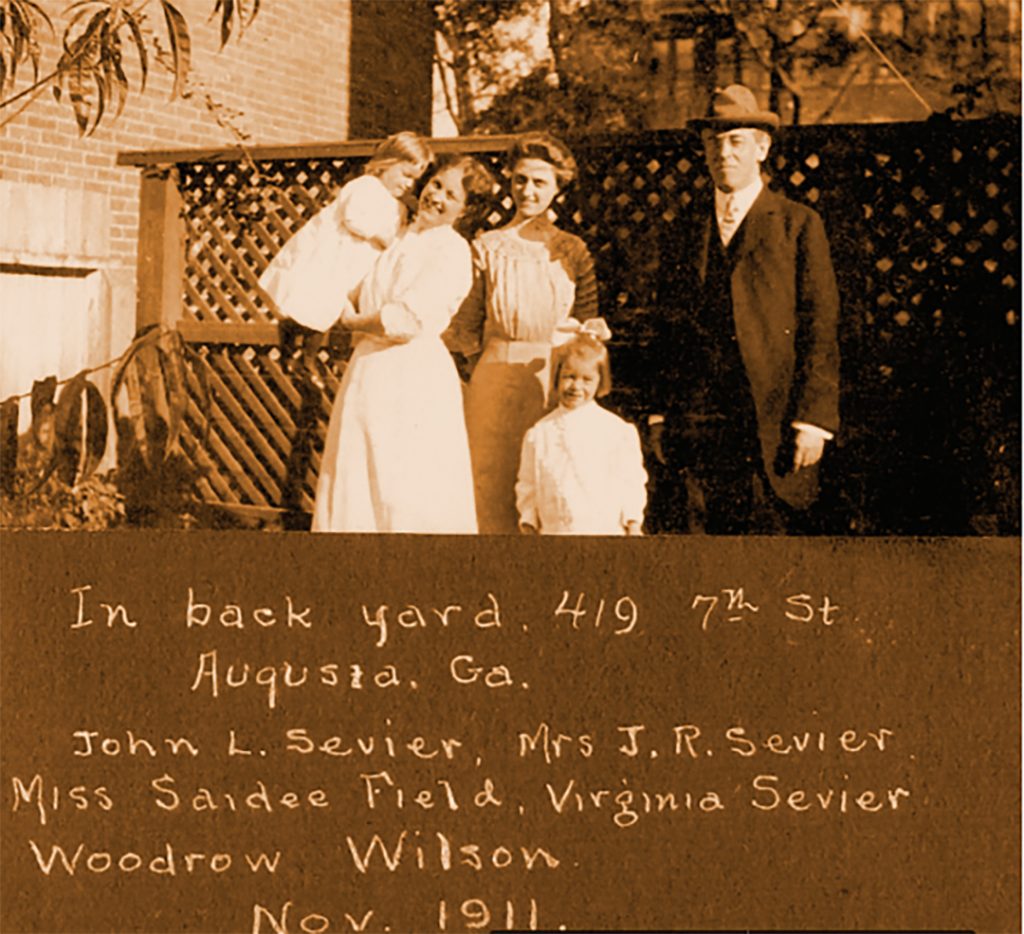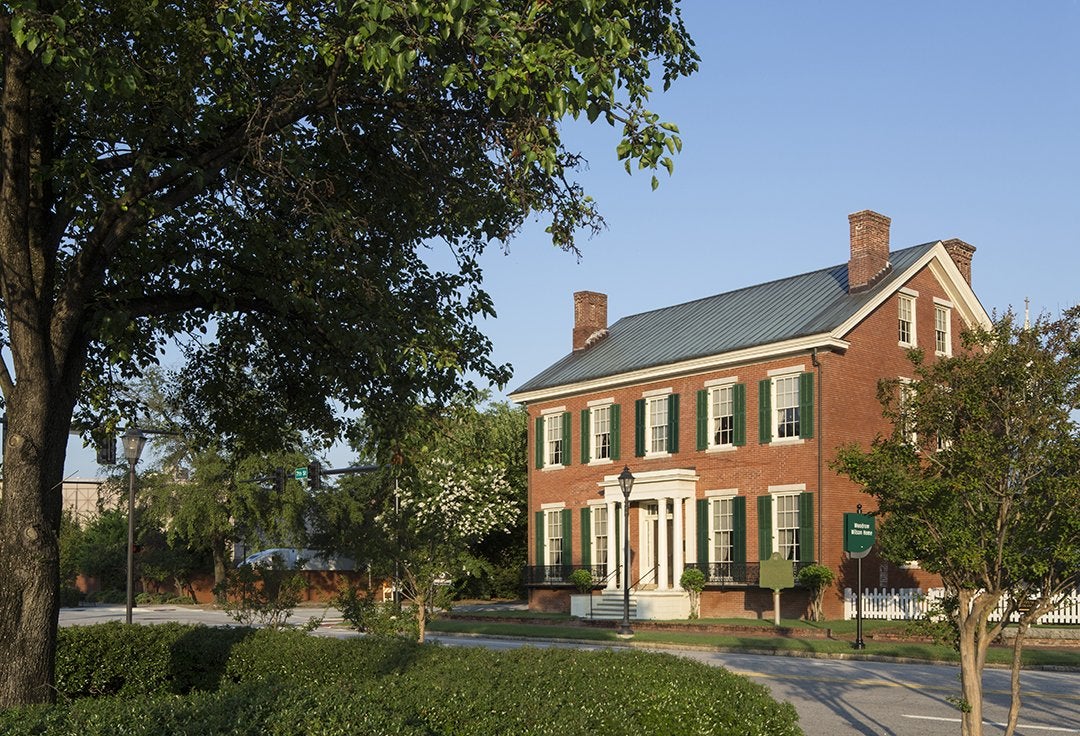The first residents of a home on the corner of Augusta’s Telfair and Seventh Streets included a future president.
The family of Woodrow Wilson, the 28th president of the United States, moved into the home in 1860, according to Stephanie Herzberg, who has been giving tours at the Boyhood Home of President Woodrow Wilson for 13 years.
“It was built in 1859, and the church (First Presbyterian Church) bought it in 1860,” she said. “It was a very modern house for the time.”
[adrotate banner=”29″]
First Presbyterian Church bought the house as a parsonage. Wilson’s father, the Rev. Joseph Ruggles Wilson, served as the church’s pastor.
Wilson lived in the home for 10 years, the longest he lived in any one place, and his memories of those turbulent times likely shaped his presidency, Herzberg said.
“He would later remark that his first memories of Augusta were in November 1860 when he was almost 4-years-old. He heard two men talking loudly. Someone said that Lincoln had been elected president and that would mean war,” she said.
Not knowing what war meant, he ran to his father to ask him questions.

The young Wilson would see the effects of war first-hand as First Presbyterian Church was used as a hospital during the Civil War. He would have seen and heard the wounded and dying and smelled the infections, she said. This could have played a part in his reluctance to join the fighting during World War I. Initially, Wilson declared the United States as a neutral nation during that conflict.
The home is preserved to depict the era the Wilsons lived there. Historic Augusta purchased it in 1991 and spent a decade restoring it to the construction and furnishing practices of the Civil War and Reconstruction era. The home has 13 pieces of original furniture remaining.
A tour of the house highlights what it would have been like for the young future president to have grown up in the South in those turbulent times.
Guests also learn about some of his pastimes, including the Lightfoot Baseball Club, which provided the young Wilson with his first foray into leadership. Formed in the late 1860s, the club had its own set of bylaws, and Wilson, who served as its president, conducted meetings according to parliamentary procedure, Herzberg said.
Because of COVID-19, tour groups are limited to six. The tours used to begin in the Lamar home next door. The Lamar home was another manse. The family of the pastor of First Christian Church lived in it. Wilson’s next-door neighbor and friend growing up was Joseph Rucker Lamar, who went on to serve as a Supreme Court justice. The two served in Washington, D.C., at the same time.
The Boyhood Home of President Woodrow Wilson is open Wednesday through Friday, but it will also open on Presidents Day, Monday, Feb. 15. Tickets are $5 for adults, $4 for seniors and $3 for students in kindergarten through 12th grade.
For reservations and additional information, call (706) 722-9828.
Charmain Z. Brackett is the Features Editor for The Augusta Press. Reach her at charmain@theaugustapress.com
[adrotate banner=”20″]










